Popular games for platform WonderSwan
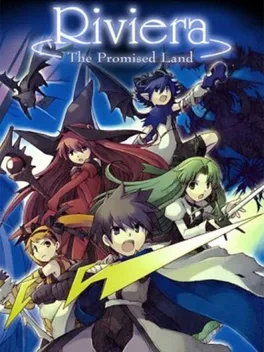
In Riviera: The Promised Land, you'll follow two fierce warriors--each armed with godly weapons--in a mission to defeat demons once and for all. The adventure included lets you experience more than 30 hours of role-playing gameplay, complete with minigames, multiple endings, and secret paths and items. The game's unique item system allows items to function differently depending on which characters equip them.
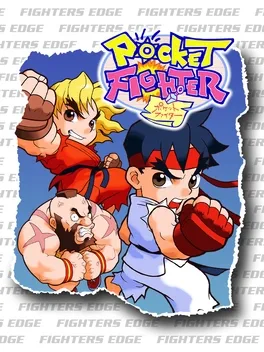
Pocket Fighter is a port of Super Gem Fighter Mini Mix. This version of the game add-in additional modes like Character Edit and Running Battle Mode. As can be expected due to the PlayStation's memory capacity, some of the Arcade release's graphics were removed, such as certain scenes and in-game effects.
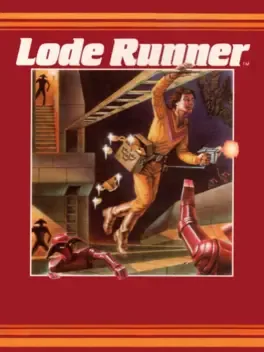
Lode Runner is a 1983 puzzle video game, first published by Brøderbund. It is one of the first games to include a level editor, a feature that allows players to create their own levels for the game. This feature bolstered the game's popularity, as magazines such as Computer Gaming World held contests to see who could build the best level.

Bust-A-Move (also known as Puzzle Bobble) is a real-time puzzle game in which the player controls a device called "pointer" at the bottom of the screen, aiming and releasing randomly colored bubbles upwards. Depending on the aiming, the bubbles may float up directly or bounce off the walls, changing their trajectory. The goal is to aim the bubbles in such a way that they will touch identically colored ones. When such bubbles form a group of three or more, they pop and disappear from the screen. If the ceiling of the area is covered by too many bubbles, it will gradually descend; the game is over when it nearly reaches the player-controlled pointer. Should the player fail to release the bubbles within a specific time limit, they will be released automatically, unaffected by the pointer's aiming.
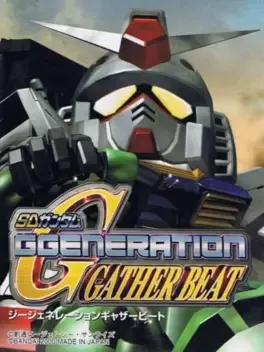
SD Gundam G Generation: Gather Beat is a Strategy game, developed by Vanguard Works and published by Bandai, which was released in Japan in 2000.
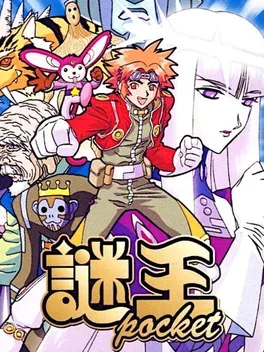
Nazo-ou Pocket is an Adventure game, developed by Bandai Visual and published by Bandai, which was released in Japan in 1999.
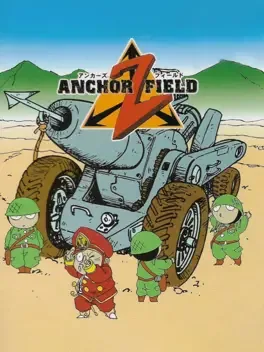
In Anchorz Field you need to anchor off territory using harpoon firing tanks, in a similar style to how you would in QIX and battle against other bobble headed armies to take over an archipelago of islands. It contains a variety of maps with different terrain, such as mountains, which restrict movement. Combat is turn based, and the harpooning of territory works off vectors not restricted to cardinal directions. Before and during battle there are illustrated cutscenes with text explaining the story.
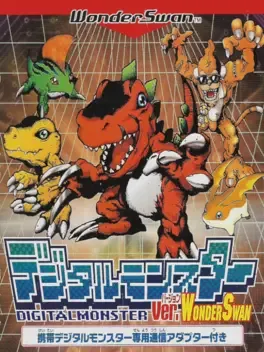
Digital Monster Ver. WonderSwan is a Japanese handheld version of the original Tamagotchi-like Digimon pet for the WonderSwan. It includes all of the original Digimon from the five different pet devices. In this game the player can have up to five different Digimon with them at a time. It even has computer controlled opponents to battle with. The game has the ability to connect to another WonderSwan through a special link cable. It can also hook up to the original pets through a Digimon "dock N rock" connector that comes packaged with the game. Digital Monster Ver. S: Digimon Tamers did much the same thing, only on the Sega Saturn. There is an English version produced for the Hong Kong region.
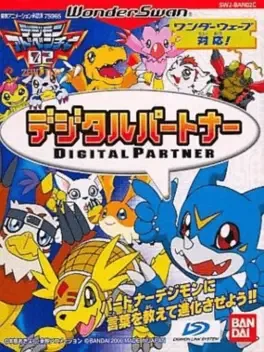
Digital Partner is a Strategy game, developed by Tom Create and published by Bandai, which was released in Japan in 2000. The major theme of the game is partnering with the 02 Digimon and teaching them up to 170 unique words which can then be used during battle.
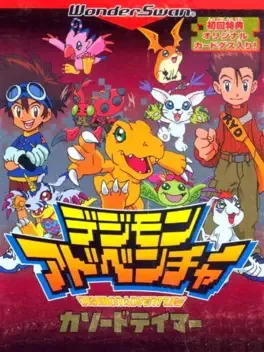
This is the second game in Digimon Adventure series, a kind of an add-on to Anode Tamer. The game is based on the popular manga Digimon. The hero, a boy named Ryou, has to travel to digital world in order to free his friends from the clutches of the evil digital monster Milenniamon. The story of this game is identical to that of "Anode Tamer". The difference between the two games are the monsters themselves: "Cathode Tamers" features a brand new set of monsters, and since the beginning of the game you encounter different foes. The full collection of monsters can be achieved only if you complete both games.
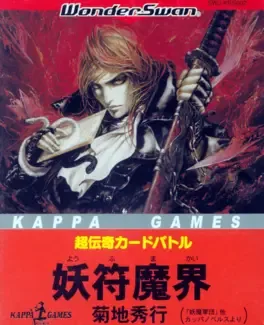
Chou-Denki Card Battle: Youfu Makai - Kikuchi Shuugyou is a Miscellaneous game, published by Chou-Denki Card Battle: Youfu Makai - Kikuchi Shuugyou is a Miscellaneous game, published by Koubunsha, which was released in Japan in 1999.
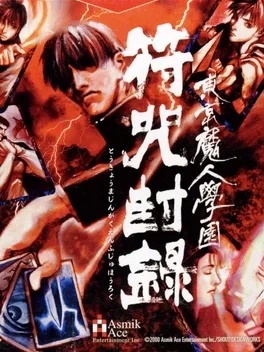
A portable entry in the Tokyo Majin Gakuen series, featuring a trading card game mixed with RPG elements.
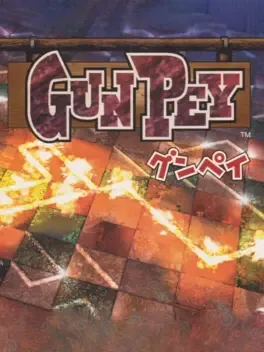
Gunpey is a Puzzle game, developed by Koto and published by Bandai, which was released in Japan in 1999.
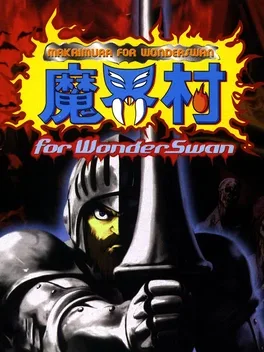
Makaimura for WonderSwan (Japanese: 魔界村?, "Demon World Village for WonderSwan") is a game for the WonderSwan developed by Capcom and published by Bandai in 1999 and is part of the Ghosts 'n Goblins franchise. Sharing similar gameplay to its predecessors, Makaimura also shares enemies, weapons and backgrounds from the previous three games. Unique features include double paths from the second till the fifth levels, swimming in water and a level which requires the player to rotate the wonderswan by 90 degrees as Arthur climbs and swings down a rope in a vertical shaft. Unlike other games, the player is not required to repeat the game after the penultimate level in order to get the one weapon to defeat the final boss Azrael.
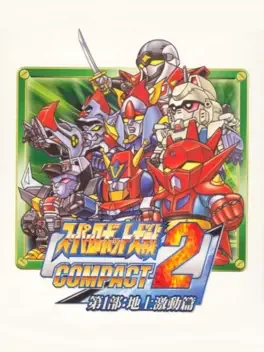
Super Robot Taisen Compact 2 Dai-1-Bu: Chijou Gekidou-hen is a Strategy game, developed by TOSE and published by Banpresto, which was released in Japan in 2000.
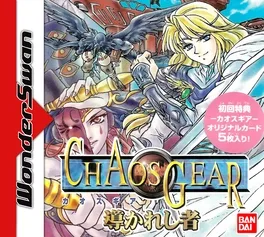
Chaos Gear: Michibi Kareshi Mono is a Strategy game, developed by Lay-Up and published by Bandai, which was released in Japan in 1999.
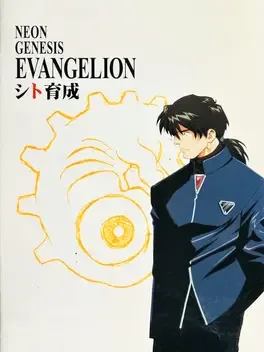
Neon Genesis Evangelion is a Role-Playing game, developed by Soft Machine and published by Bandai, which was released in Japan in 1999.
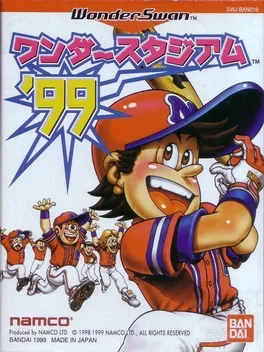
Released a mere five months after the original Wonder Stadium, Wonder Stadium '99 does not add much in the way of gameplay. This update adds information about the 1999 Japanese baseball season to the game. The game gives you a selection of 14 fictional and professional teams as well as three different stadiums, just as the original did.
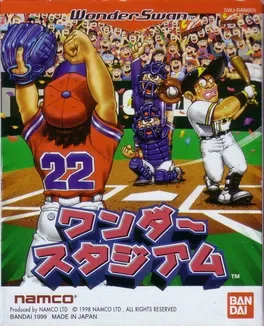
Wonder Stadium is a Sports game, developed by TOSE and published by Bandai, which was released in Japan in 1999.
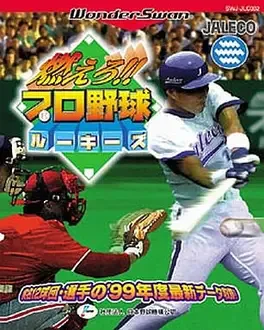
Moero!! Pro Yakyuu Rookies is a Sports game, developed by TOSE and published by Jaleco Entertainment, which was released in Japan in 2000.
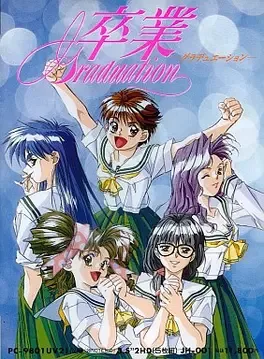
Sotsugyou Graduation for WonderSwan is a Strategy game, developed by Imageworks (Japan) and published by Bandai Visual, which was released in Japan in 1999.
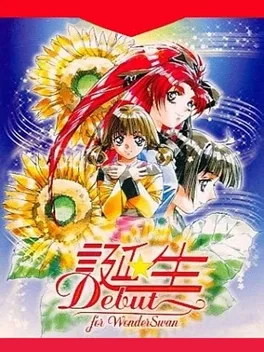
Tanjou Debut for WonderSwan is a Strategy game, developed and published by Bandai Visual under the Emotion label , which was released in Japan in 2000.
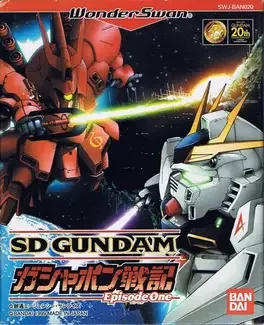
SD Gundam: Gashapon Senki Episode 1 is a Strategy game, developed by Graphic Research and published by Bandai, which was released in Japan in 1999.
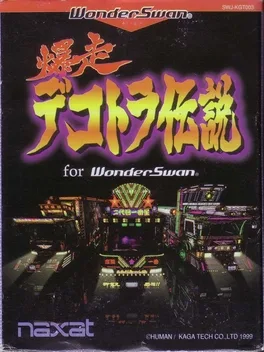
You are a young man who lives in Japan and likes driving trucks. There is a competition of truck drivers who deliver goods all across the country. Willing to impress your girlfriend Yukie, you decide to participate in the races and to win the title of the best trucker in Japan.